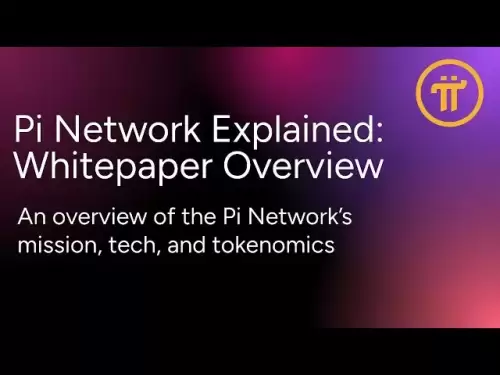-
 Bitcoin
Bitcoin $121,713.8152
3.06% -
 Ethereum
Ethereum $3,041.6437
2.42% -
 XRP
XRP $2.9499
5.12% -
 Tether USDt
Tether USDt $1.0000
-0.02% -
 BNB
BNB $704.1034
1.75% -
 Solana
Solana $166.7523
2.91% -
 USDC
USDC $0.9999
0.00% -
 Dogecoin
Dogecoin $0.2052
2.90% -
 TRON
TRON $0.3011
-0.47% -
 Cardano
Cardano $0.7461
1.42% -
 Hyperliquid
Hyperliquid $48.3650
1.12% -
 Stellar
Stellar $0.4548
3.52% -
 Sui
Sui $3.9527
14.50% -
 Chainlink
Chainlink $16.3300
5.87% -
 Bitcoin Cash
Bitcoin Cash $511.8016
1.25% -
 Hedera
Hedera $0.2395
1.40% -
 Avalanche
Avalanche $21.6526
2.06% -
 UNUS SED LEO
UNUS SED LEO $9.0073
-0.23% -
 Shiba Inu
Shiba Inu $0.0...01369
2.61% -
 Toncoin
Toncoin $3.0335
0.66% -
 Litecoin
Litecoin $96.6206
1.72% -
 Monero
Monero $355.1673
5.35% -
 Polkadot
Polkadot $4.0839
2.47% -
 Uniswap
Uniswap $9.3282
9.72% -
 Dai
Dai $0.9997
-0.01% -
 Ethena USDe
Ethena USDe $1.0004
-0.04% -
 Pepe
Pepe $0.0...01248
1.07% -
 Bitget Token
Bitget Token $4.4642
2.68% -
 Aave
Aave $325.0626
6.81% -
 Bittensor
Bittensor $418.1482
6.22%
What is the difference between PPS+ and PPLNS pool payment methods?
PPS+ offers miners immediate, predictable payouts per share, while PPLNS rewards depend on contributions during a set window before a block is found.
Jul 15, 2025 at 01:57 am
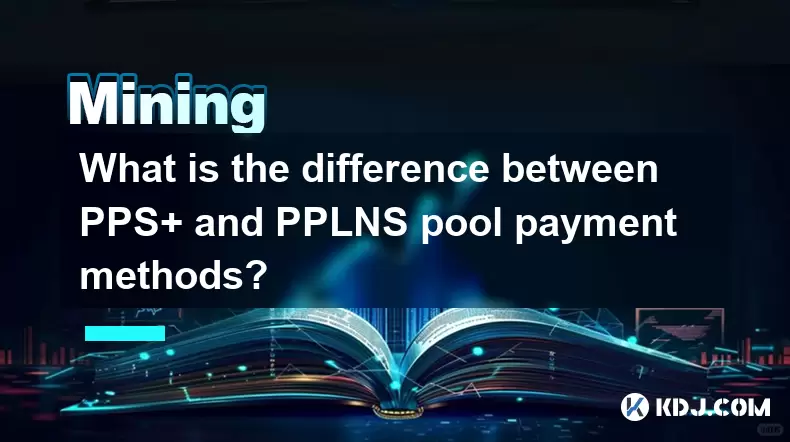
Understanding the Basics of Mining Pool Payment Methods
Mining pools play a crucial role in cryptocurrency mining by allowing individual miners to combine their computational power and increase the probability of successfully mining blocks. To distribute rewards among participants, mining pools employ various payment methods. Two of the most commonly used are PPS+ (Pay Per Share Plus) and PPLNS (Pay Per Last N Shares). Each method has its own approach to calculating and distributing rewards, which affects miner earnings and risk exposure.
What Is PPS+?
PPS+ (Pay Per Share Plus) is a payment model where miners receive a fixed reward for each valid share they submit. The "Plus" in PPS+ refers to the inclusion of transaction fees and other additional rewards beyond just the block subsidy. This means that miners are paid immediately based on the expected value of shares submitted, regardless of whether the pool actually finds a block or not.
Under this system, the pool operator assumes more risk because they guarantee payments even during periods when no blocks are found. Miners benefit from predictable income and are not penalized for variance in luck or timing.
- Miners get paid per share submitted.
- Payments include transaction fees, enhancing total reward.
- Pool operator bears the variance risk.
What Is PPLNS?
PPLNS (Pay Per Last N Shares) is a payment method that calculates rewards based on the number of valid shares submitted within a certain window before a block is found. Instead of paying every share immediately, the pool waits until a block is discovered and then distributes the reward among those who contributed recent shares.
This model focuses on fairness over time rather than immediate payout. It discourages "pool hopping" — a practice where miners switch pools frequently to exploit short-term gains. Since only the last N shares are counted, miners must stay connected long enough to be included in the reward calculation.
- Reward depends on contribution during the N-share window.
- No immediate payment for shares.
- Encourages long-term participation.
Key Differences Between PPS+ and PPLNS
The primary difference between PPS+ and PPLNS lies in how and when miners are compensated for their work. In PPS+, payouts are instant and consistent, making it ideal for miners seeking stable returns. In contrast, PPLNS introduces variability since rewards depend on when a block is found and how many shares were submitted during the relevant window.
Another major distinction is the distribution of risk. Under PPS+, the pool operator absorbs the variance associated with finding blocks, while in PPLNS, the miners bear this risk collectively. Additionally, PPS+ includes transaction fees directly in each payout, whereas PPLNS incorporates them into the overall block reward calculation.
- PPS+ offers predictable income; PPLNS may result in fluctuating earnings.
- PPS+ pays immediately, PPLNS pays after a block is found.
- PPS+ pools often charge higher fees to offset operator risk.
Which Method Favors Miners More?
Whether PPS+ or PPLNS benefits miners more depends on individual preferences and strategies. Miners who prioritize stable income with minimal variance will likely prefer PPS+. It ensures that they are compensated for every valid share without being affected by the pool's luck in finding blocks.
On the other hand, miners comfortable with some degree of unpredictability might find PPLNS advantageous in the long run. If the pool performs well and finds blocks consistently, the rewards can be higher due to the absence of a fixed fee structure that protects the pool operator under PPS+.
- PPS+ suits low-risk tolerance miners.
- PPLNS suits long-term miners willing to accept variability.
- Transaction fee inclusion varies between both models.
Operational Considerations for Miners
When choosing between PPS+ and PPLNS, miners should consider several operational factors:
- Pool Fees: Some PPS+ pools charge higher fees to cover the risk taken by the operator. Compare these fees across different pools.
- Network Difficulty: In highly competitive environments, PPLNS could offer better returns if the pool is efficient at finding blocks.
- Mining Duration: If you plan to mine continuously, PPLNS might yield better results over time. For short sessions, PPS+ ensures immediate compensation.
- Monitoring Tools: Ensure your mining software supports accurate tracking of shares and rewards under either model.
Always test with small mining durations first and monitor your dashboard to understand how each payment model impacts your actual earnings.
Frequently Asked Questions (FAQs)
Q1: Can I switch between PPS+ and PPLNS within the same mining pool?
Some pools allow switching between different payment methods, but many require miners to choose one method when joining. Always check the pool’s documentation or support section before starting.
Q2: How does network congestion affect PPS+ and PPLNS differently?
In PPS+, network congestion doesn't impact payout stability since rewards are fixed per share. In PPLNS, increased difficulty or slower block times can reduce the frequency of payouts, affecting overall income consistency.
Q3: Are there any hidden costs in PPLNS compared to PPS+?
While PPS+ pools may have visible maintenance or service fees, PPLNS pools might indirectly charge through lower effective rewards during unlucky streaks. Always analyze historical data before committing.
Q4: Do all cryptocurrencies support both PPS+ and PPLNS payment methods?
No, support depends on the blockchain protocol and pool implementation. Larger networks like Bitcoin and Ethereum usually have both options available, but smaller altcoins may only support one method.
Disclaimer:info@kdj.com
The information provided is not trading advice. kdj.com does not assume any responsibility for any investments made based on the information provided in this article. Cryptocurrencies are highly volatile and it is highly recommended that you invest with caution after thorough research!
If you believe that the content used on this website infringes your copyright, please contact us immediately (info@kdj.com) and we will delete it promptly.
- Token Buybacks & Altcoin Developers: Navigating Market Tokens in the Wild West
- 2025-07-15 04:30:12
- BlockDAG, X1 App, and Litecoin Outlook: A 2025 Mid-Year Crypto Surge?
- 2025-07-15 05:30:12
- Bitcoin Blasts Past $120K: How US Policy is Fueling the Crypto Craze
- 2025-07-15 04:30:12
- Bitcoin's Big Move: Price Discovery and the Wall Street Frenzy
- 2025-07-15 04:50:12
- The Herald Snags American Legion's State Award: A Big Win for Local Journalism
- 2025-07-15 04:50:12
- Bhutan's Bitcoin Bet: Offloading BTC Amid Crypto Surge - A Strategic Masterstroke?
- 2025-07-15 05:30:12
Related knowledge
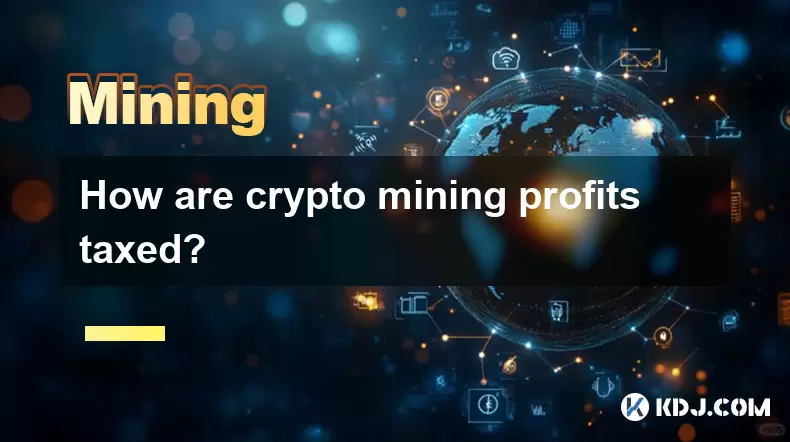
How are crypto mining profits taxed?
Jul 14,2025 at 12:28am
Understanding Cryptocurrency Mining and TaxationCryptocurrency mining involves validating transactions on a blockchain network and earning rewards in ...
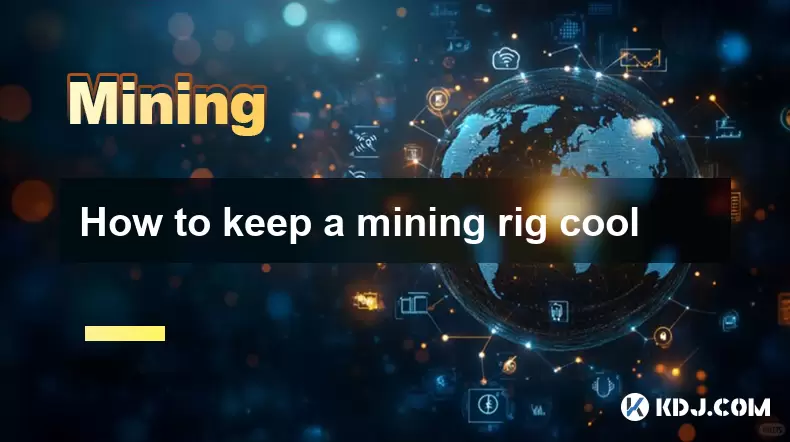
How to keep a mining rig cool
Jul 12,2025 at 01:42pm
Understanding the Importance of Cooling in Mining RigsCryptocurrency mining is an intensive process that places heavy demand on hardware components, p...
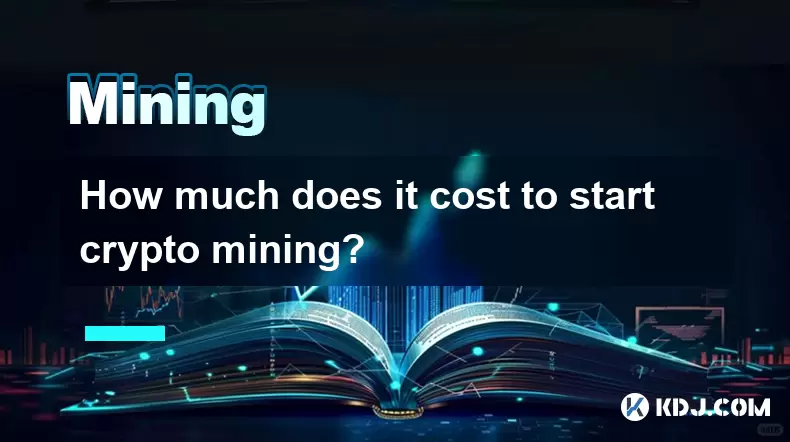
How much does it cost to start crypto mining?
Jul 13,2025 at 12:22am
Understanding the Basic Costs of Crypto MiningStarting crypto mining involves several upfront and ongoing expenses. The primary costs include hardware...
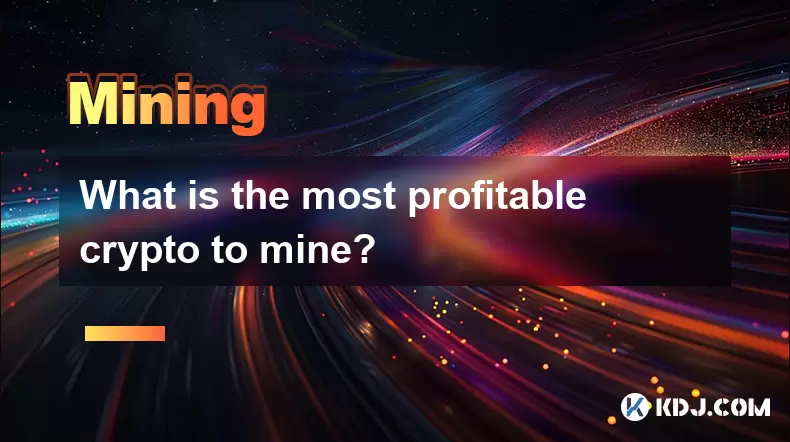
What is the most profitable crypto to mine?
Jul 13,2025 at 07:00am
Understanding Mining Profitability in CryptocurrencyWhen evaluating the most profitable crypto to mine, it's essential to consider several factors tha...
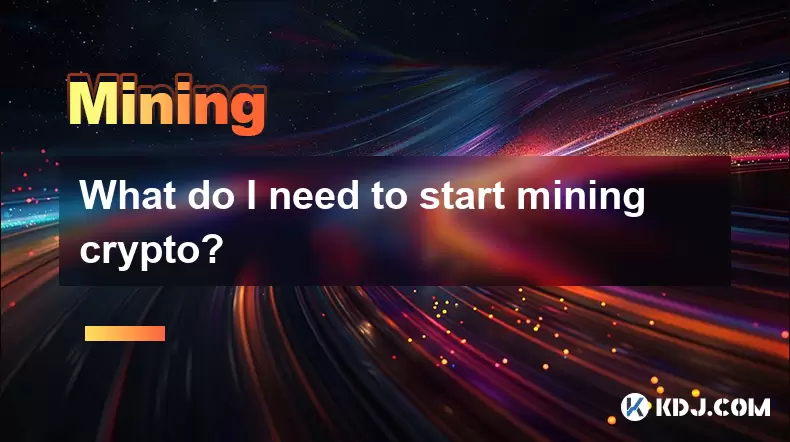
What do I need to start mining crypto?
Jul 13,2025 at 12:28am
Understanding the Basics of Crypto MiningCrypto mining is the process by which transactions are verified and added to a blockchain, and new coins are ...
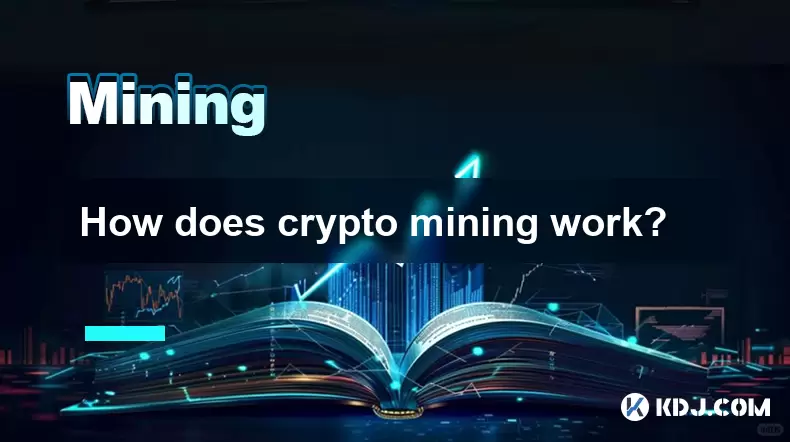
How does crypto mining work?
Jul 13,2025 at 11:01am
Understanding the Basics of Crypto MiningCrypto mining is the process through which new cryptocurrency coins are introduced into circulation and trans...

How are crypto mining profits taxed?
Jul 14,2025 at 12:28am
Understanding Cryptocurrency Mining and TaxationCryptocurrency mining involves validating transactions on a blockchain network and earning rewards in ...

How to keep a mining rig cool
Jul 12,2025 at 01:42pm
Understanding the Importance of Cooling in Mining RigsCryptocurrency mining is an intensive process that places heavy demand on hardware components, p...

How much does it cost to start crypto mining?
Jul 13,2025 at 12:22am
Understanding the Basic Costs of Crypto MiningStarting crypto mining involves several upfront and ongoing expenses. The primary costs include hardware...

What is the most profitable crypto to mine?
Jul 13,2025 at 07:00am
Understanding Mining Profitability in CryptocurrencyWhen evaluating the most profitable crypto to mine, it's essential to consider several factors tha...

What do I need to start mining crypto?
Jul 13,2025 at 12:28am
Understanding the Basics of Crypto MiningCrypto mining is the process by which transactions are verified and added to a blockchain, and new coins are ...

How does crypto mining work?
Jul 13,2025 at 11:01am
Understanding the Basics of Crypto MiningCrypto mining is the process through which new cryptocurrency coins are introduced into circulation and trans...
See all articles


























